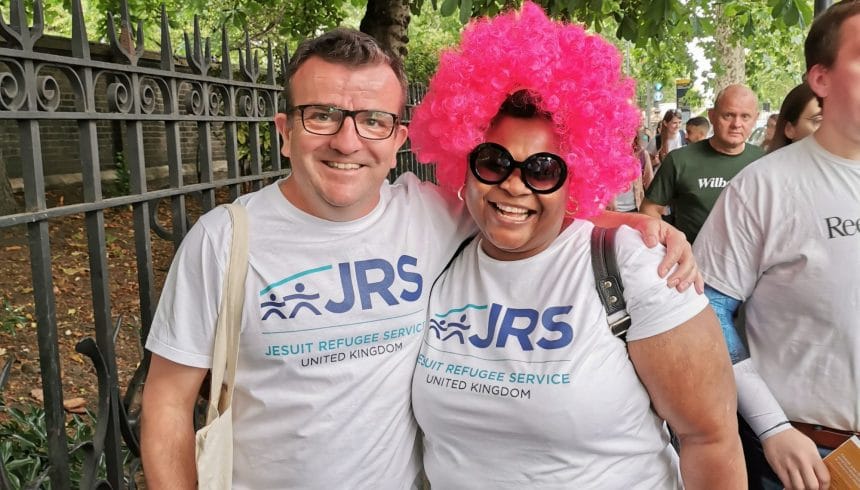‘All you have to do in life Aidan, is love God and be kind’. These words were said to me a few years back by a lady from Bermuda, now resident here, and they have stuck with me ever since.
It all sounds so simple, but perhaps life should be simpler. What if we explored more how trying to be kind might benefit ourselves and have a positive impact on those around us? Would we be willing to make more of an effort? It’s not always easy to act in a kind way, but a simple smile is sometimes all it takes to make a difference to someone’s day.
Tackling London’s rush hour each day I often feel saddened by the lack of random acts of kindness I witness. Opportunities to smile, hold a door open for someone, or help someone who looks lost or disorientated are always there – but rarely taken. I get a buzz out of behaving differently sometimes and making eye contact with people, being patient and prioritising other people’s needs or comfort.
‘Random acts of kindness’ do not have to be large gestures or even take much effort, in fact they can be unseen and never recognised, but they all add up to make an important difference. You can let someone know you care about them in a variety of different ways. I’ve been reflecting on the many occasions when I’ve been the recipient of a random act of kindness; more often than not it’s the kind words I’ve received from others that spring to mind. Knowing that people recognise my good points and are prepared to laugh about my not so good points is always a huge comfort to me.
Feeling inspired to be more kind? Consider giving to those in need whom we serve
As a consequence, I’m trying very hard to praise people more and recognise their importance to me. It’s a bit of a challenge because I’ve always been more inclined to tease, poke fun, name call and laugh at someone else’s misfortune. I’m now far more inclined to say ‘I like your hair today’ than ‘what happened to your hair?!’. Perhaps it’s maturity or perhaps I’m learning that being unkind to people, all be it in jest, is still an opportunity missed to perform a random act of kindness.
Staff and volunteers at JRS recently attended a three day training workshop on accompaniment. During this time we were able to share and deepen our practical understanding of accompanying refugees and other forced migrants, while exploring some of the challenges and joys this brings. A common theme that came up when trying to identify what accompaniment means was ‘being there’ for someone.
‘Being there’ is an act of kindness and a term I’ve come across in previous chapters of my life. I particularly remember how strongly it featured in the Dealing with Bereavement training I received whilst working for a Hospice, as well as in a fantastic training film I saw about 20 years ago when I was working in the hotel business.
This film was set in a Fish Market in Seattle and the workers bought in to a philosophy that proved very good for business. There were four Practices of The FISH! Philosophy:
- BE THERE – Be emotionally present for people. It’s a powerful message of respect that improves communication and strengthens relationships.
- PLAY – Tap into your natural way of being creative, enthusiastic and having fun. Play is the spirit that drives the curious mind, as in “Let’s play with that idea!” You can bring this mind-set to everything you do.
- MAKE THEIR DAY – Find simple ways to serve or delight people in a meaningful, memorable way. It’s about contributing to someone else’s life—not because you want something, but because that’s the person you want to be.
- CHOOSE YOUR ATTITUDE – Take responsibility for how you respond to what life throws at you. Your choice affects others. Ask yourself: “Is my attitude helping my team or my customers? Is it helping me to be the person I want to be?”
These practices, formed in a profit making organisation, are equally appropriate in all settings even outside of work. They can be applied to our relationships with friends, family members and any other social groups we may belong to. All appear to promote ‘random acts of kindness’ by responding to any situation with a generous and positive attitude.
At JRS many of the refugee friends we visit in detention, host, or welcome to our centre are dependent on the kindness of others. Only some get the opportunity to reciprocate in some practical way with random acts of kindness of their own. For those of us in a privileged position to be able to offer help, the rewards can be joyful and often immeasurable.
Aidan Cantwell is senior operations manager at JRS UK.
Read more to find out how kindness shapes our mission of accompaniment
You can donate money or physical items to us today



